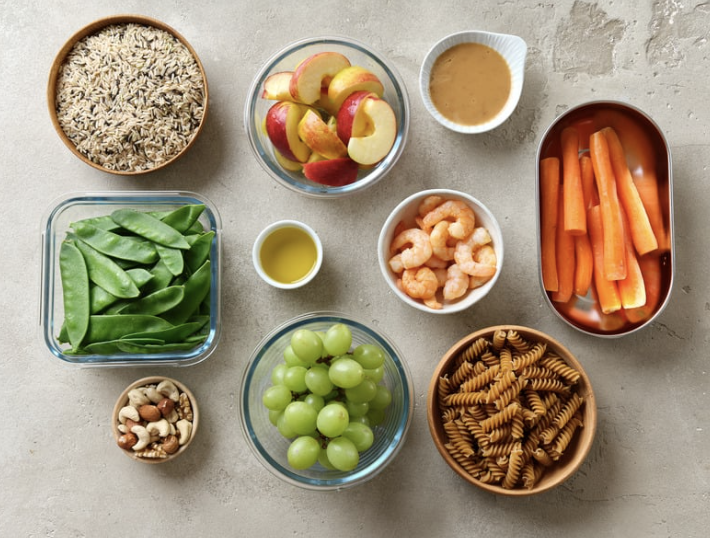
The belief in maintaining health through “eating and drinking in moderation and living regularly” is widely acknowledged. At WorldShine, we subscribe to the idea that a balanced nutritional approach, with ingredients adjusted based on the changes in solar terms, can contribute to the creation of wholesome meals. This, in turn, facilitates better care for the bodies of the elderly.

Source: https://hnrca.tufts.edu/myplate/about/what-myplate-older-adults
Adhering to the meal delivery standards derived from Tufts University’s Healthy Eating Plate for Seniors, WorldShine has established the following guidelines for lunch:
Lunch: vegetables, protein, grain and snack

Different Vegetables: Vegetables typically have high water content and low-calorie levels. Consuming vegetables can alleviate the burden on the cardiovascular and gastrointestinal tract. Additionally, certain vegetables are rich in calcium and magnesium, contributing to the maintenance of bone health.
Meat/Meat Alternate: Adequate protein intake is essential for the elderly to preserve bone density and reduce the risk of fractures and bone damage.
Grain: Grains provide a variety of vitamins and minerals, such as B vitamins, magnesium, iron, and zinc, which help maintain various body functions.
Snack: A healthy snack, characterized by low sugar and high fiber content, is both delectable and easily digestible.
Low-Fat Milk: Low-fat milk is a beneficial choice for the elderly due to its contributions to bone health through calcium and vitamin D, essential for preventing issues like osteoporosis. It serves as a high-quality protein source, supporting muscle maintenance and repair. Choosing low-fat options aids heart health by reducing saturated fat intake, potentially lowering cholesterol levels. Additionally, it facilitates weight management by providing essential nutrients with reduced fat content. The nutrient density of low-fat milk ensures vital vitamins and minerals without excess calories.
WorldShine’s dietary health tips for the elderly:
- Balanced Diet: Ensure a well-balanced diet that includes a variety of fruits, vegetables, whole grains, lean proteins, and low-fat dairy products. This provides essential nutrients for overall health.
- Calcium and Vitamin D: Adequate intake of calcium and vitamin D is crucial for bone health. Include dairy products, leafy greens, and fortified foods in the diet.
- Hydration: Stay well-hydrated. Water is important for various bodily functions, and dehydration can be common among the elderly.
- Fiber-rich Foods: Include fiber in the diet through whole grains, fruits, and vegetables. This helps with digestive health and can prevent constipation.
- Protein Intake: Ensure sufficient protein intake to maintain muscle mass. Good sources include lean meats, poultry, fish, beans, and dairy products.
- Limit Sodium Intake: Reduce the intake of high-sodium foods to help manage blood pressure. Use herbs and spices for flavor instead of excessive salt.
- Healthy Fats: Choose sources of healthy fats such as avocados, nuts, seeds, and olive oil. Limit saturated and trans fats.
- Regular Meals: Aim for regular and balanced meals. This helps in maintaining energy levels throughout the day.
- Limit Added Sugars: Minimize the consumption of added sugars found in sweets, sugary beverages, and processed foods.
- Consult a Healthcare Professional: Individual dietary needs may vary, and it’s advisable for the elderly to consult with a healthcare professional or a registered dietitian for personalized advice.

